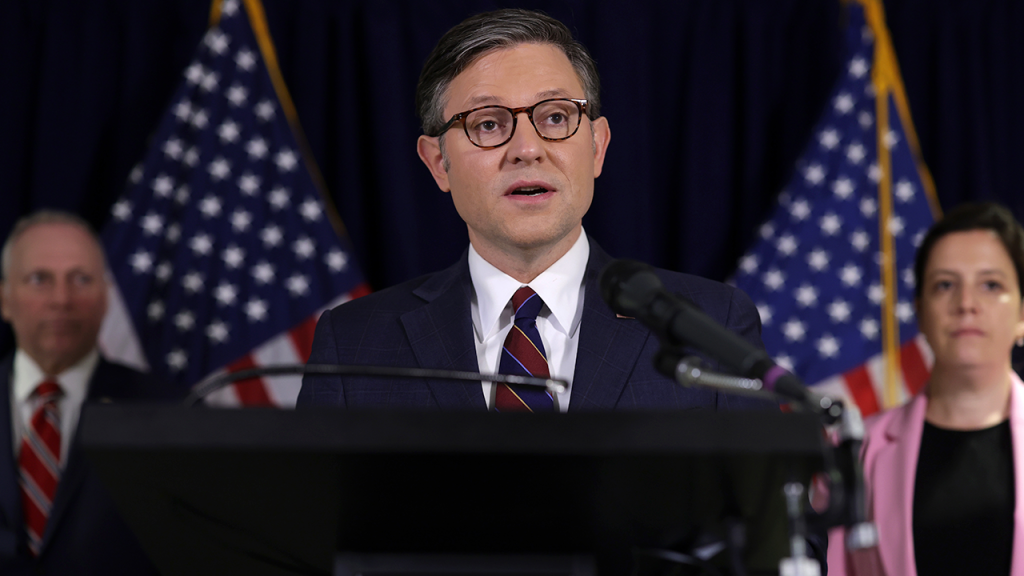Republican Speaker Mike Johnson had to delay a House-wide vote on his plan to prevent a partial government shutdown due to several GOP members defecting from the bill. The bill, a short-term extension of government funding known as a continuing resolution (CR), also included a provision mandating proof of citizenship in the voter registration process. Originally scheduled for a late afternoon vote, at least eight Republican lawmakers expressed opposition. This breaking story will be updated as more information becomes available.
The situation was quickly evolving as Speaker Johnson announced that there would be “no vote today” on the measure. The bill was put on life support, with GOP defections threatening its passage just days after it was rolled out. Johnson’s plan to avert a government shutdown seemed uncertain as House leaders grappled with the unexpected opposition from within their own party. The delay raised concerns about the ability to reach a consensus and pass the bill before critical government operations were at risk.
The bill’s combination of a short-term funding extension and a citizenship requirement in voter registration faced opposition from some Republican lawmakers, further complicating its chances of passing in the House. Although the bill aimed to prevent a partial government shutdown, internal divisions within the GOP posed a significant challenge to its viability. With the vote delayed and the bill’s future uncertain, the House was left in a state of uncertainty as leaders navigated the rapidly changing circumstances.
Speaker Johnson’s decision to delay the House-wide vote highlighted the fragility of the situation, as GOP defections put the bill in jeopardy just days after it was introduced. The inclusion of a citizenship requirement in the voter registration process added a controversial element to the bill, further dividing Republican lawmakers. As House leaders grappled with the unexpected opposition, concerns grew about the potential consequences of a government shutdown if a resolution could not be reached swiftly.
The breaking story continued to develop as House leaders worked to address the GOP defections and find a path forward for the bill. The delay in the vote signaled the challenges they faced in securing enough support to pass the measure and avert a government shutdown. As tensions rose within the party over the bill’s provisions, Speaker Johnson and other leaders were left to navigate a complex political landscape where consensus was elusive and time was running out.
The uncertainty surrounding the bill’s passage and the looming threat of a government shutdown underscored the challenges facing lawmakers as they grappled with internal divisions and external pressures. Speaker Johnson’s attempt to avert a crisis through a short-term funding extension was met with unexpected resistance, highlighting the fragility of the legislative process. As updates on the situation continued to emerge, the fate of the bill remained uncertain, leaving the House in a state of flux as leaders worked to bridge the divide and secure the necessary votes for passage.













